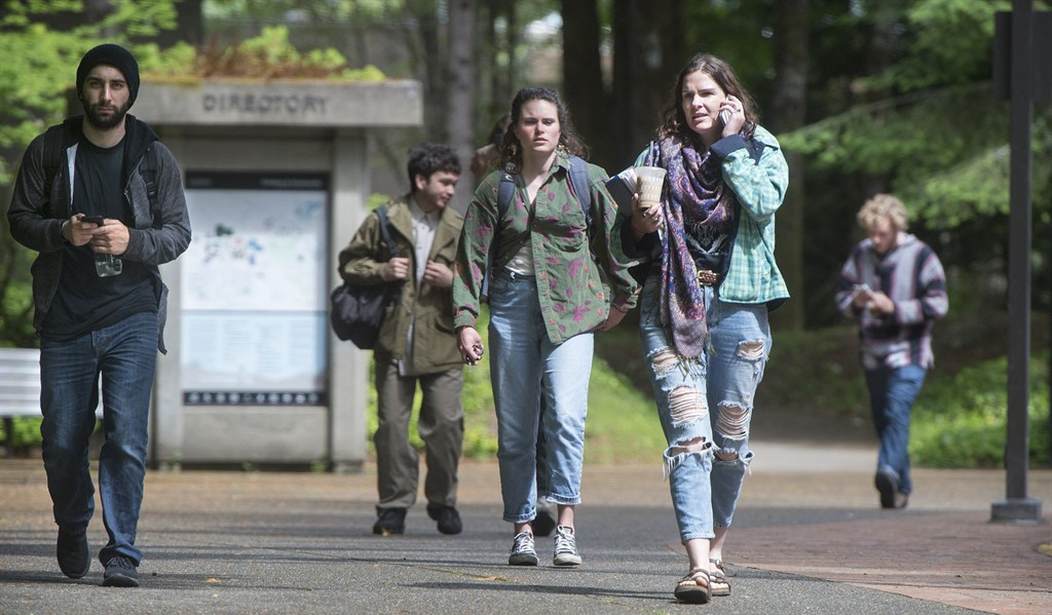One of the basic tenets of political thought in the West is that the government doesn’t have the right to treat certain people or groups worse than others because of their beliefs.
Unfortunately, that’s exactly what some government officials are doing every single day on American public university campuses.
Of course, universities don’t advertise that they are violating the Constitution. Instead, they veil their actions, hiding unconstitutional policies behind language like “bias response” and “anti-discrimination.” No college student gets excited about being labeled “biased” and “discriminatory,” so all too often, the unlawful policies remain in place—even when that means students’ basic First Amendment rights are being violated.
That’s what happened at Montclair State University in New Jersey. At MSU, all students pay a student activity fee, which goes into a pool of money that student organizations can use for events and activities. Because all students pay in equally, all student groups should have equal access to the funds. Instead, MSU maintained an explicit “class system” that allocated funding to groups based on their seniority and their viewpoint. In other words, groups that the student government agreed with got more of the money than groups that held a different perspective.
But that wasn’t the only unconstitutional policy at MSU. The administration also exerted absolute control over who expressed what viewpoints on campus. Student groups, and even individual students, were compelled to apply at least two weeks in advance for a “permit” to speak or protest on campus, and the campus bureaucracy decided, with no oversight whatsoever, who received a permit and who did not.
Recommended
What’s more, administrators had gone so far as to create a “task force” to identify, monitor, and punish anything its members perceived as “biased.” Their definition of that term was variable, arbitrary, and applied most often to social and political issues and groups or individuals whose views university officials didn’t like. The penalty for those accused of bias could include re-education seminars—even expulsion.
This unconstitutional system repressed and silenced students’ viewpoints. Public college and university campuses are supposed to be “marketplaces of ideas” where students enjoy multiple opportunities to express their own beliefs and to encounter the beliefs of others—but when an autocratic bureaucracy controls speech on campus and decides which groups receive funding based on their viewpoint, the marketplace becomes an echo chamber.
Last year, a group of MSU students decided that enough was enough, and chose to stand up for the First Amendment rights of all students—not just the ones the administration happened to agree with.
The pushback began when the campus chapter of Young Americans for Liberty (YAL), a libertarian group, held a demonstration on campus. Three YAL students gathered in a common area outdoors and quietly held up signs expressing statements about Second Amendment rights. No violence, no commotion.
Not long after the demonstration began, though, school police arrived and ordered the students to disperse. The students had not obtained the proper permissions to gather, said the police, in keeping with the MSU policy that required all student groups to gain such a permit before speaking publicly on campus.
This policy, as well as the class system and bias response task force, completely ignored the fact that all college students at public colleges have the First Amendment rights to freedom of speech and freedom of association—and they do not lose those rights when they step onto on campus.
The YAL students knew the school’s policy wasn’t right. So, they reached out to Alliance Defending Freedom’s (ADF) Center for Academic Freedom, which quickly launched an investigation of MSU. Besides the unconstitutional “permit” requirement, ADF uncovered other problematic policies, including the “class system” that allowed campus officials to give preferential treatment to groups based on viewpoint, and a “bias response system” that allowed those same officials to target and punish conservative and libertarian students based on vague and discriminatory viewpoint-based criteria.
After uncovering all these policies, ADF filed a federal lawsuit against MSU on behalf of the students of YAL. That lawsuit was successful, with MSU settling earlier this month. The university agreed to change its unconstitutional policies and dismantle its discriminatory “task force.” Now students and student groups at MSU are free to access student funding, and to gather and express their beliefs without fear of retaliation or punishment.
So, Montclair State University eventually did the right thing—but only after YAL sued it. Many other public universities across the country continue to enforce similarly unconstitutional policies that suppress speech, ban gatherings, withhold funding, and punish students for their beliefs.
When groups like YAL speak up, they aren’t just speaking up for their own rights; they’re advocating for the rights of all students on all public campuses, all of whom ought to be free to speak and live according to their deeply held beliefs.

























Join the conversation as a VIP Member